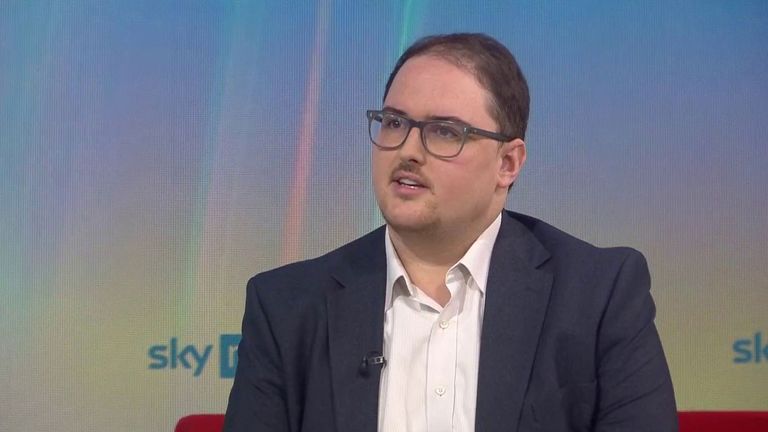
The energy regulator has warned the UK is facing a “significant risk” of gas shortages this winter.
The information, which was revealed in a letter sent from Ofgem last week and first revealed by The Times, spoke of the possibility of “gas supply emergency” measures to help preserve stocks due to the impact of Russia’s war in Ukraine which has starved Europe of its main source of natural gas.
A gas supply emergency can be declared when suppliers are unable to safely get gas to homes and businesses.
It could mean that some customers, starting with the largest industrial consumers, will be asked to stop using gas for a temporary period.
The aim would be to keep gas and gas-generated electricity supplies stable for households for as long as possible.
The stark warning emerged as energy bills come under the protection of government caps, shielding both households and businesses from the worst in the wholesale price surge ahead of winter.
An Ofgem spokesperson told Sky News: “This winter is likely to be more challenging than previous ones due to the Russian disruption of gas supplies to Europe.
“Britain is in a good position with little direct import of gas from Russia; our own domestic gas production; reliable supplies from Norway; and the second-largest port capacity in Europe to import liquified gas.
“Nevertheless, we need to be prepared for all scenarios this winter.
“As a result, Ofgem is putting in place sensible contingency measures with National Grid ESO (electricity system operator) and GSO (gas system operator) as well as the government to ensure that the UK energy system is fully prepared for this winter.”
The regulator spoke up just days before National Grid was due to give an update to its winter outlook for spare power capacity.
It had said at the end of July that it expected supply to be tight but did not expect the lights to go out despite the Europe-wide battle to secure supplies.
Commenting on the situation, senior analyst at the Energy and Climate Intelligence Unit Jess Ralston said: “The UK electricity system has been built to rely on gas to balance the peaks and troughs of supply and demand, but this reliance could now prove problematic if prices spike further and supplies run low.
“With proposed decoupling of gas and renewables prices, wind and solar power will drive down bills and investment in batteries and other storage like pumped hydro will increasingly perform this balancing act.”
A separate report on Monday justified nerves over the approaching winter months.
The International Energy Agency (IEA) warned of “unprecedented risks”, adding that prolonged cold snaps would place supplies at particular risk.
Its quarterly report found that European Union countries would need to reduce use by 13% over the course of the winter months in case of a complete Russian cut-off.
Supplies from Russia – which accounted for 40% of the bloc’s natural gas needs ahead of the war – are currently only running at a tiny fraction of usual capacity.
The EU has accused Moscow of weaponising supplies by turning off the taps on the main Nord Stream 1 pipeline.
Nord Stream 1 and the yet to come on stream Nord Stream 2 pipeline have since been ruptured, with blasts caused by sabotage said to have caused gas inside the pipes to leak out.
The supply crisis has seen businesses on the continent, particularly Germany, cut back on natural gas use as prices soar.






